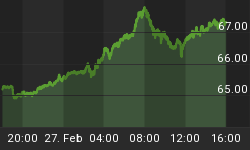Despite the exorbitant--and rising--costs of American higher education, those dollars aren’t necessarily translating into better-paying jobs.
In some cases, that means that you might end up in the same place if you’re a gas-station attendant with no student debt or a Bachelor-degree-toting college grad.
It’s hardly the American dream.
Over the past decade, education costs in the U.S. have risen by 26%. U.S. student loan borrowers, some 45 millions of them own a collective $1.6 trillion in federal and private student loan debt. The strong job market should be helping graduates pay back what they owe. They eventually do, but a number of recent studies show that college Return of Investment (ROI) isn’t what it used to be.
According to a study by the Federal Reserve Bank of New York, the labor market may have an overabundance of degree holders.
Meanwhile, many of the new jobs that are being generated don't require a bachelor's and may not pay enough for grads to cover their loan payments.
Recently, while high-school graduates have seen a sharp pickup in earnings, while the lower-earning half of college graduates haven’t.
Bloomberg says the gap between them is now the smallest it’s been in 15 years.
A college education is expensive and getting more so every year, and it’s outpacing the growth in family incomes. From 2008 to 2018, tuition at four-year public schools rose an average of 3.1% a year, while median inflation-adjusted family income increased by only 0.8% a year.
Also, the cost of living in the U.S. rose 30% over the past 13 years, while food and housing costs have surged by 36% and 32%, respectively. At the same time, younger generations are overburdened with student loan debt, recession, stressed out about retirement potential and drowning in wage stagnation.
Student debt has the greatest impact on Millennials--the most highly educated generation in U.S. history. According to The Wall Street Journal, approximately 40% of those between the ages 25 and 37 hold at least a bachelor’s degree, compared to 25% of baby boomers and 30% of Gen Xers at the same age.
However, the emerging generation, Gen-Z might change everything.
Related: Tesla Reopens Chinese Factory After Coronavirus Scare
About 54% of Gen Zers say they want to start their own company, and many of them are having second thoughts about college altogether. They think they can accomplish their goals without going into debt for college--or without college entirely.
Part of the problem for Millennials is competition, plain and simple. There are just too many degree-holders in the market. At the same time, demand for very different types of specialized skills that don’t require a degree--such as plumbing and electrical--are in high demand.
The Federal Reserve Bank of New York findings show that more than four in 10 recent graduates are working in jobs that don’t typically ask for a college degree.
A recent report by Georgetown University stresses that there is a wide range of earnings among those with associate degrees and professional certificates. A worker with an associate degree may out-earn a worker with a much-coveted Bachelor’s degree. In the same vein, a worker with a certificate can end up making more than someone with an Associate’s degree, though that varies from field to field.
The number of students now earning professional certificates and Associate’s degrees is on the rise. Around 50% of undergraduate students nationwide are enrolled in certificate and associate’s degree programs, compared to 47% on their way to earning a Bachelor’s.
For a long time, a Bachelor’s degree was the path to a guaranteed larger income. Today, the margins are shrinking and everyone’s got a Bachelor’s degree, and the market isn’t impressed.
By Michael Kern for Safehaven.com
More Top Reads From Safehaven.com:
















